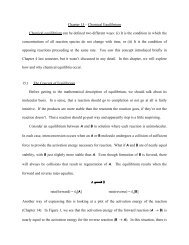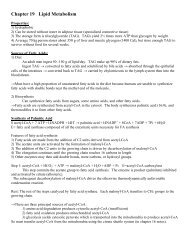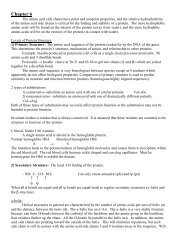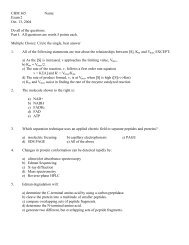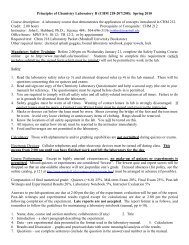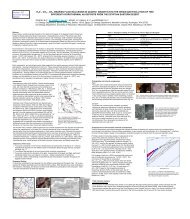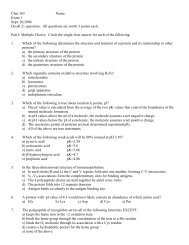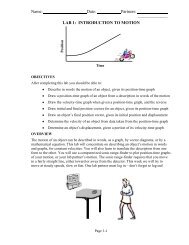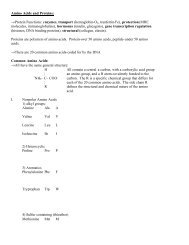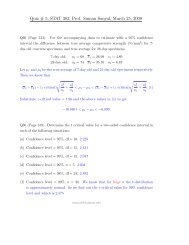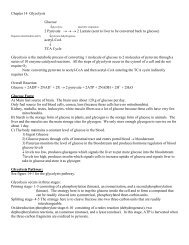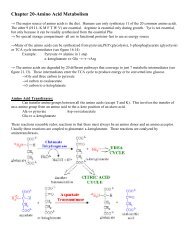THE DHAMMAPADA: THE WAY OF THE BUDDHA, VOL. 9-12 The ...
THE DHAMMAPADA: THE WAY OF THE BUDDHA, VOL. 9-12 The ...
THE DHAMMAPADA: THE WAY OF THE BUDDHA, VOL. 9-12 The ...
Create successful ePaper yourself
Turn your PDF publications into a flip-book with our unique Google optimized e-Paper software.
<strong>THE</strong> <strong>DHAMMAPADA</strong>: <strong>THE</strong> <strong>WAY</strong> <strong>OF</strong> <strong>THE</strong> <strong>BUDDHA</strong>, <strong>VOL</strong>. 9-<strong>12</strong> 179<br />
meditation. <strong>The</strong> processes are different. In knowledge you have to go into words, into language, into scriptures.<br />
In knowing you have to go within yourself. <strong>The</strong> processes are not only different but polar opposites. In knowing,<br />
first you have to drop knowledge because that becomes a hindrance. First you have to know that ”I don’t know.”<br />
You have to become innocent.<br />
Jesus says: Unless you are as innocent as small children you will not enter into my kingdom of God.<br />
<strong>The</strong> clergyman was telling his guests a story when his little girl interrupted.<br />
”Daddy,” she asked, ”is it true or is it mere preaching?”<br />
<strong>The</strong>re is a great difference whether something is true or is just preaching ”mere preaching.”<br />
An old priest had to leave his village one Saturday the day everyone goes to confession. He taught the new<br />
young priest who was taking over his job the necessary basics: ”If a woman steals money from her husband three<br />
’Ave Maria’ and two ’Pater Noster’; if someone commits adultery five ’Ave Maria’ and three ’Pater Noster’; for<br />
those who have been telling lies one ’Ave Maria’ and two ’Pater Noster’, and so on.”<br />
<strong>The</strong> young priest heard first the confession of a pretty village girl.<br />
”Father, I have committed a sin,” the girl said.<br />
”What have you done-a, my child-a?” asked the priest.<br />
”I have given the boy next door a blow job,” she replied timidly.<br />
<strong>The</strong> young priest was puzzled because he had not been instructed about such a situation. At that moment,<br />
he saw the old priest passing by, his suitcase in hand, preparing to leave. Quickly he called out to the old man,<br />
”Father, Father, one moment please. <strong>The</strong>re is a young-a girl-a here. What do I give her-a for a blow-a job?”<br />
”Fifty dollars,” replied the old priest.<br />
Knowledge is borrowed; knowing is yours, your own. It is authentic. Knowledge is information, knowing is<br />
transformation.<br />
You ask me, Nicholas, ”You talk about the difference between knowing and knowledge. But to become a master,<br />
do you not have to have knowledge as well as knowing?”<br />
Knowing is enough. To be a master, knowing is enough.<br />
”It seems to me,” you say, ”that you, in your talks, show much knowledge.”<br />
I am not a master because of my knowledge, but in spite of it! I was a professor in the university. I had to<br />
struggle a great deal to get out of my knowledge. Still, something of it goes on lingering around me. Forgive me<br />
for that! But it has nothing to do with being a master.<br />
Jesus had no knowledge; he was more fortunate. He was not a professor in a university, he was just a poor<br />
carpenter’s son. Mohammed was fortunate; he was absolutely illiterate. I was unfortunate. I have suffered a lot<br />
from knowledge. My whole problem was how to get rid of it. That’s why I am so much concerned about you and<br />
I continuously insist on being aware of knowledge don’t become knowledgeable. I am saying it because of my<br />
own experience.<br />
It is easy to renounce wealth, it is easy to renounce power, prestige, because they are outside things. <strong>The</strong><br />
greatest problem is to renounce your knowledge because it goes so deep. It becomes almost a part of your being,<br />
it becomes so ingrained. You can escape to the Himalayas the wife, the shop, the power, everything will be left<br />
behind, but not knowledge. It will be there with you wherever you go. It is not a shadow, it is something inside<br />
your skin. It is easy to get out of your skin; it is more difficult to get out of your knowledge. Hence I go on<br />
saying to you: Beware, beware of becoming knowledgeable. And there is a great tendency in the mind to become<br />
knowledgeable because it is very ego-fulfilling.<br />
But one need not be knowledgeable to become a master. If you are already knowledgeable, then put it aside.<br />
Become innocent again so that you can know on your own, and when you have known you can use your knowledge.<br />
It can be used, but only later on. Knowing comes first, then you can use your knowledge, but your use of knowledge<br />
will be totally different from the use of the scholars.<br />
That’s why my interpretation of Jesus, Buddha, Mahavira, is totally different from the interpretations of<br />
scholars. It is bound to be so. <strong>The</strong>ir interpretations are verbal, they are only logical interpretations. <strong>The</strong>y are<br />
great argumentators, clever in hairsplitting.<br />
My interpretations are not argumentative, are not intellectual. My interpretations are paradoxical. If you are<br />
against me you can call them anti-intellectual; if you love me you can call them supra-intellectual. It depends<br />
on you. If you are against me, they are irrational; if you are in love with me, they are suprarational. If you are<br />
against me, they are self-contradictory; if you love me they are mysterious, paradoxical.<br />
And when I say anything I am not concerned whether I am being true to Buddha or not. My concern is<br />
whether I am being true to myself or not. If I am true to myself I know that I must be true to Buddha; it can’t



